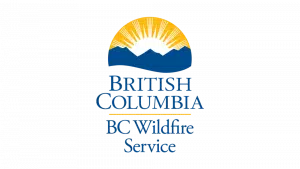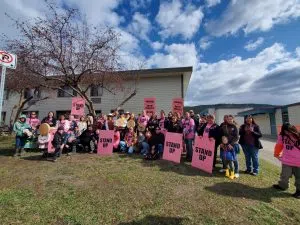February 15, 2018: Williams Lake, BC: The Tsilhqot’in National Government (TNG) commends Canada for announcing a new Recognition and Implementation of Indigenous Rights Framework as a path to realizing Indigenous self-determination.
For far too long, Canada’s history has been built on the denial of Indigenous rights, cultures and aspirations for the future. Recognition and implementation of Indigenous rights is the only path to a respectful relationship and the systemic changes that are urgently needed to transform the lives of Indigenous peoples in this country.
The promise of imminent legislation to recognize and implement rights, developed in partnership with First Nations, is a positive start. The Tsilhqot’in Nation intends to present Canada with its own path to self-determination. Understanding the generations of work done by Indigenous leaders, it is the perspective of the Tsilhqot’in that our engagement towards self-determination is one that reflects multiple jurisdictions, and constitutionally a third order of government expressed through section 35.
For generations, the Tsilhqot’in people have fought for recognition of our culture, our jurisdiction over our land, water and every aspect of our lives, and our right to decide the future of our peoples. We will continue this journey and call on Canada to work with us to finally establish the rightful place of our nation in the constitutional framework of this country, replacing the Indian Act and fully embracing the Tsilhqot’in Nation judgment.
Quotes:
Chief Joe Alphonse, Tribal Chairman of Tsilhqot’in National Government:
“We were in Parliament yesterday to hear the Prime Minister’s call to recognize and support the right of Indigenous peoples to self-determination and control of our futures. As Tsilhqot’in, we have pushed for over 150 years for change in this country and progress is far too slow. Today, we were honoured to meet with the family of Colten Boushie – his story being a powerful reminder of how far we still have to go as a country.”
“The Prime Minister’s announcement today is a small step in the right direction, but a significant one. We will hold him to his words. The journey for our rights may be long, but we are headed in the right direction. We will know that we are finally making progress when – and only when – our people actually feel change in our communities, enjoying the quality of life and hope for the future that other Canadians take for granted. We hope the Prime Minister’s announcement is a step on that path.”
(Lheidli T’enneh Territory, Prince George, BC – February 15, 2018) – Following Prime Minister Trudeau’s speech yesterday regarding the recognition and implementation of an Indigenous rights framework, the Regional Chief was pleased to hear renewed commitments towards improving the lives of Indigenous people, and stated: “We look forward to building a relationship founded on the recognition of rights, respect, cooperation and partnership with Canada, and we will support this framework to achieve reconciliation in this country.”
Prime Minister Trudeau acknowledged that although Aboriginal rights have been recognized and affirmed in Section 35 of the Constitution Act, both First Nations and the Crown have spent millions of dollars on litigation as the courts continue to be used in an adversarial way, and this must change.
This new framework aims to provide guidance for recognition and implementation of First Nations rights; it will also be used as a tool for dispute resolution. The framework will guide the implementation of recommendations from the Royal Commission on Aboriginal Peoples, the Truth and Reconciliation Commission’s Calls to Action, the Royal Commission on Aboriginal Peoples, and the countless other studies and reports. This framework will also guide all federal laws related to implementing the United Nations Declaration on the Rights of Indigenous Peoples as a new norm in Canadian laws, policies and regulations.
Despite this, the Regional Chief remains cautiously optimistic about this new framework. There are many things Canada can do right now to implement the many frameworks already in place and mentioned above, as noted by MP Romeo Saganash today following the Prime Minister’s speech, such as respecting the Free, Prior, and Informed consent on resource and development projects like Site C and the Kinder Morgan pipeline.
Regional Chief Teegee said: “While it is inspiring to hear the Prime Minister renew his commitments to Indigenous Peoples in Canada, the concrete actions and measured deliverables that come out of these commitments are their most important features. First Nations in BC look forward to contributing to this conversation as it moves forward in partnership with Canada, and in developing supports and capacity to realize the potential of this framework.”








